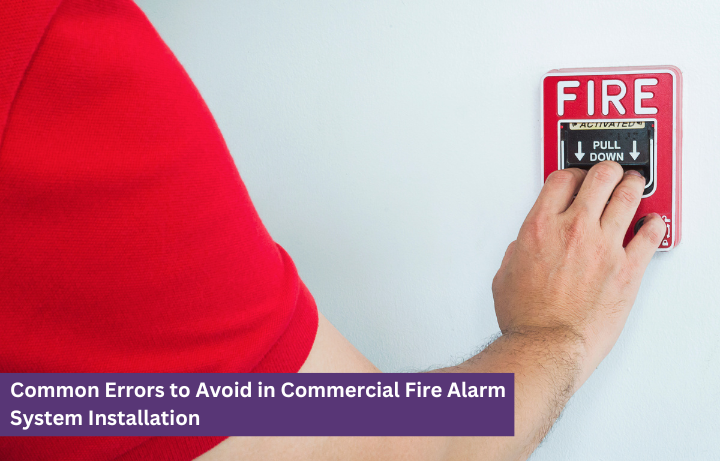Common Errors to Avoid in Commercial Fire Alarm System Installation

A commercial fire alarm system is your business’s first line of defense against fire emergencies. But what happens when that system isn’t installed correctly? False alarms, malfunctioning sensors, or worse failing to detect an actual fire can put lives and property at risk.
If you’re working with an alarm system company in St. Louis, knowing what NOT to do is just as important as knowing what to do. Here’s a look at some of the most common fire alarm installation mistakes and how to avoid them.
1. Installing Smoke Detectors in the Wrong Locations
Ever had a smoke alarm go off because of burnt toast in the office breakroom? That’s a sign of poor placement. Smoke detectors that are too close to kitchens, vents, or even bathrooms can trigger false alarms. On the other hand, placing them too far from fire-prone areas can delay detection.
How to Get It Right:
- Install smoke detectors away from kitchens and vents to reduce false alarms.
- Place heat detectors in areas where smoke might not trigger alarms, like mechanical rooms.
- Follow NFPA guidelines or consult a commercial alarm company for expert placement.
2. Failing to Link Fire Alarms with HVAC Systems
A properly integrated fire alarm system should communicate with a building’s HVAC system to prevent smoke from spreading. Some businesses forget this step, allowing smoke to circulate even after an alarm is triggered.
How to Avoid This Mistake:
- Connect your commercial fire alarm system with the HVAC system to shut down air circulation during an alarm.
- Test the system’s response to smoke and fire conditions.
- Have a certified fire alarm system company verify proper integration.
3. Choosing the Wrong Type of Fire Alarm System
Not all fire alarm systems are suited for every commercial building. A system designed for a small office may not work effectively in a warehouse or restaurant. Some businesses install basic alarms when they actually need an addressable system that pinpoints fire locations.
How to Avoid This Mistake:
- Assess your building size, layout, and fire risks before selecting a system.
- Work with a certified fire alarm system company like ACF Alarm to identify the best option.
- Consider smart fire alarm systems that integrate with building security.
4. Improper Fire Alarm Sound Levels and Strobe Placement
Fire alarms must be loud enough to alert all occupants, but volume levels can be inconsistent if not properly configured. Similarly, strobe lights should be placed where they are visible to those with hearing impairments.
How to Avoid This Mistake:
- Test sound levels throughout the building, ensuring they meet local requirements.
- Install strobes in hallways, restrooms, and high-traffic areas.
- Follow the guidelines of a commercial alarm company for optimal placement.
5. Neglecting System Testing and Calibration
Installing a fire alarm system without thorough testing is a major oversight. Even a well-installed system can fail if not properly tested and calibrated.
How to Avoid This Mistake:
- Conduct initial and periodic testing to confirm system functionality.
- Check for faulty sensors, alarm signals, and communication failures.
- Work with a certified fire alarm system company to perform routine inspections.
6. Not Integrating the Fire Alarm with Other Safety Systems
A fire alarm system should work alongside sprinklers, emergency lighting, and access controls. However, businesses often install these systems separately without integrating them for maximum efficiency.
How to Avoid This Mistake:
- Connect your commercial fire alarm system with sprinklers and emergency exits.
- Make sure the alarm triggers automatic door releases for safe evacuation.
- Use a centralized fire control panel for unified system management.
7. Ignoring Post-Installation Documentation
Proper documentation is essential for fire inspections, insurance claims, and system maintenance. Some businesses forget to collect important records after installation.
How to Avoid This Mistake:
- Keep records of installation details, equipment manuals, and inspection reports.
- Maintain a log of system tests and maintenance history. Read this guide on How Often Should You Service a Commercial Fire Alarm System?
- Store documentation in an easily accessible but secure location.
Work with a Trusted Commercial Alarm Company
Avoiding these common mistakes starts with choosing the right alarm system company in St. Louis. ACF Alarm offers professional installation, maintenance, and monitoring services to keep your business protected.
Contact ACF Alarm today to schedule a consultation and safeguard your business with a reliable fire alarm system.